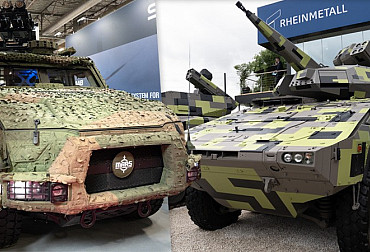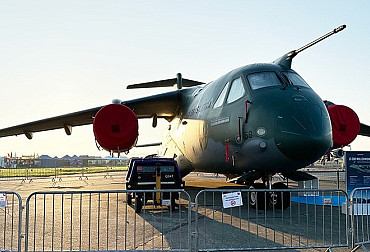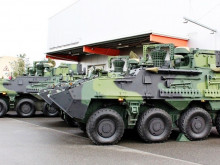Interview with the Chief of Staff of the British Military Advisory Training Team BMATT
Born in Glasgow, Maj Robert Whyte was educated at Bellshill Academy. He enlisted into the Army in June 1988, completing his training at Scottish Divisional Depot Glencorse Barracks prior to joining The Kings Own Scottish Borderers. Maj Whyte was commissioned into The Royal Regiment of Scotland on the 6 September 2011.
Maj Whyte has deployed on various operational tours to include Northern Ireland, Iraq, and Afghanistan. Appointments at Regimental Duty have included Sub Unit Command, BGLO, QM, QM (T), Regimental Career Management Officer, Unit Welfare Officer.
Picture: Maj Whyte, Chief of Staff he moved to BMATT(CZ) | Ministry of Defense of the Czech Republic
Maj Whyte has had a varied career and has been employed as chief instructor at the operational training and advisor group (OPTAG) for operations in Iraq. He has also instructed at various training establishments as an instructor for recruits under training.
Prior to assuming the appointment of Chief of Staff BMATT(CZ) he was a Company Commander, Battle Group Logistic Officer (BGLO) with 3 SCOTS were he took part on a major exercise testing the BG as part of (VJTF) very high joint task force deploying to Poland with supporting elements from Lithuania Armed Forces in support of UK defence, NATO. Successfully being selected for Loan Service as the Chief of Staff he moved to BMATT(CZ) in Sept 20, 2020 with his wife Sarah.
We asked Maj Whyte a few questions about the BMATT project.
1) How long BMATT has been operating in the Czech republic
BMATT CR operates in the Czech Republic on the basis of a Memorandum of Understanding between the Ministry of Defence of the Czech Republic and the Ministry of Defence of the United Kingdom of Great Britain and Northern Ireland on the establishment of the British Military Advisory and Training Team for Central and Eastern Europe of 25 July 2000. The BMATT team has been operating in Vyškov since October 31, 2000, when it was officially launched by the British Crown Prince Charles.
On 31 May 2007, the Minister of Defence of the Czech Republic Vlasta Parkanová and the Ambassador of the United Kingdom of Great Britain and Northern Ireland to the Czech Republic Linda Dufield signed a Memorandum on the extension of the scope of the British expert team. This team, which has so far trained soldiers from NATO countries and members of the Partnership for Peace program, has thus expanded its activities to the member countries of the Mediterranean Dialogue.
On 20 September 2007, the Senate of the Parliament of the Czech Republic, by its Resolution No. 209 of the 8th meeting, approved the government's proposal on the stay of members of the armed forces of Afghanistan, Algeria, Iraq, Morocco and Tunisia to participate in training courses organized by the British Military Advisory and Training Centre. team in the Czech Republic, provided that the number of members of the armed forces of these states sent to training courses does not exceed 50 people at any time and the length of their stay will be a maximum of three months.
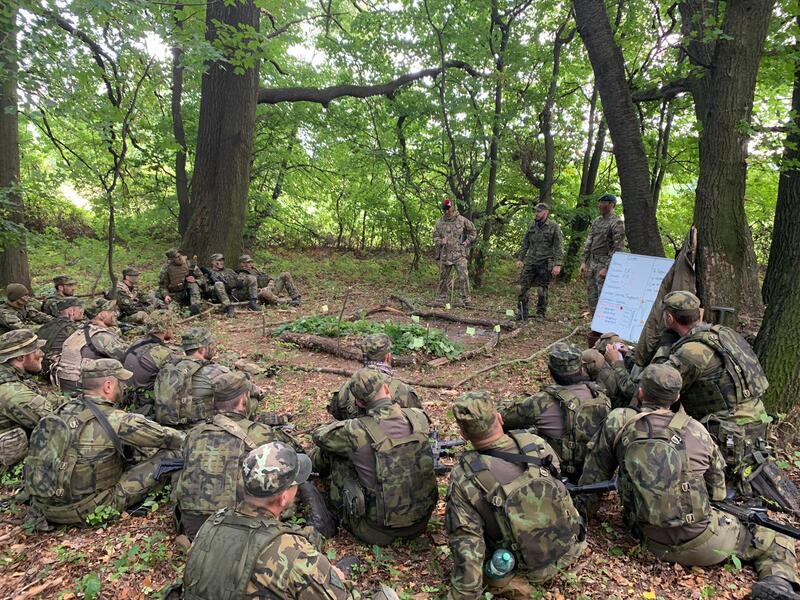 Picture: From the BMATT course | Ministry of Defense of the Czech Republic
Picture: From the BMATT course | Ministry of Defense of the Czech Republic
The main task of the team, which consists of 5 officers, 13 other ranks ensigns and sergeants selected from the Royal Navy, ground and air forces, is to assist in the development of professional armies and especially a professional corps of ensigns and sergeants. BMATT organizes courses that vary from 4 weeks to 2 weeks courses, which train soldiers in Vyškov and overseas with via deployed teams every year.
2) How are British instructors selected for the BMATT program?
Currently BMATT have 16 British instructors with 5 Czech military attached to the unit for instruction and liaison. The soldiers are selected by their unit and a further boarding process through the Army Personnel Centre or single service, Navy, RAF selection boards. Soldiers and officers will be graded and should have the correct qualifications for conducting and instructional skills on all weapon systems with qualification to conduct live firing on ranges. They also conduct various other skills, medical training, public order, and operational experience, Iraq, Afghanistan etc.
3) Is there a difference between newcomers who have entered BMATT training years ago and newcomers coming today?
Over the last few years the standard of instructors and students that has attend the course has increased significantly, this could be due to operational experience, and the new teaching methods that have been adopted and evolved. Training is a constantly learning and evolving new tactics techniques procedures (TTPs)
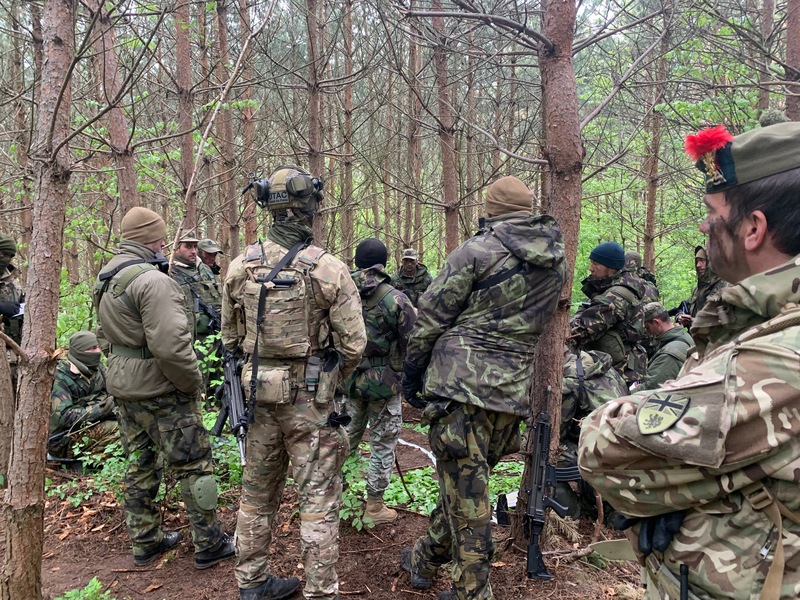 Picture: From the BMATT course | Ministry of Defense of the Czech Republic
Picture: From the BMATT course | Ministry of Defense of the Czech Republic
4) How do you evaluate the success of the BMATT program?
All courses are designed using the UK defense systems approach to training process (DSAT). All students are coached and mentored by highly experienced British instructors who will monitor and encourage each student to give their best. The course will provide all students with the opportunity to develop their confidence in delivering training through measured instruction, practice and evaluation – setting effective and achievable conditions and standards for success.
Assessments will be both theoretical and practical. The theory assessments are conducted on prepared assessment papers and graded on completion. This allows BMATT (CZ) instructors to monitor student progression in order to be able to target the known areas of weakness through statistical analysis.
Formative assessments designed to monitor the student's progress are carried out on a weekly basis with students receiving guidance and remedial training where applicable.
 Picture: From the BMATT course | Ministry of Defense of the Czech Republic
Picture: From the BMATT course | Ministry of Defense of the Czech Republic
A summative knowledge assessment is carried out once all of the course's subject matter has been delivered. Students will also be assessed practically with theory and skills lessons, weapons lessons and Battle Lessons (BL) in order for them to prove competence in the course's training objectives. Instructional techniques involves: student management, preparation and planning of theory and practical lessons, question and answer techniques, and fault checking. Students will initially be taught, through demonstrations, examples of how effective training should be conducted before being given the opportunity to prepare and deliver instruction to their peer group.
5) Other allies also go to the Czech Republic as part of BMATT training courses army. Why did the British choose our republic?
The Czech Republic has a fantastic facility within Training Command – Military Academy a departmental educational and training facility of Ministry of Defence of the Czech Republic.
It is designed to organize and carry out basic, professional and special training, career military education, training of military professionals and Active Reserves of the Czech Armed Forces. It provides training of troops and units of the Czech Armed Forces for international deployment. It secures running and development of training facilities within military training areas of the Czech Armed Forces and further, simulation and trainer technologies utilized by the Czech Armed Forces; it also plans their use and within them, prepares conditions for training of Czech troops and NATO forces in partnership with BMATT (CZ) to deliver several courses for NATO, partners nations countries.
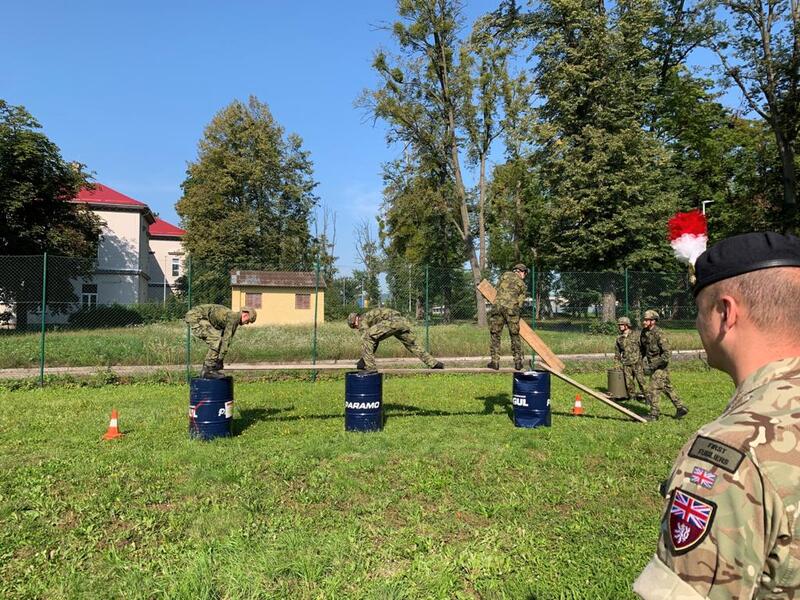 Picture: From the BMATT course | Ministry of Defense of the Czech Republic
Picture: From the BMATT course | Ministry of Defense of the Czech Republic
Relations between the Czech Republic and the United Kingdom have long enjoyed an excellent level. Diplomatic relations between the countries were established immediately after the formation of the Czech Republic in 1993. The high level of relations is based on the tradition of good ties between Czechoslovakia and the United Kingdom in history, either after the creation of Czechoslovakia in 1918, during the Second World War, or after 1989. The Czech Republic and the United Kingdom cooperate not only in the political and economic, but also in social, cultural, scientific and educational areas. The Countries have similar views on a number of topics in foreign policy and global security. The cooperation intensified after the Czech Republic joined NATO and EU.
 Picture: From the BMATT course | Ministry of Defense of the Czech Republic
Picture: From the BMATT course | Ministry of Defense of the Czech Republic
















